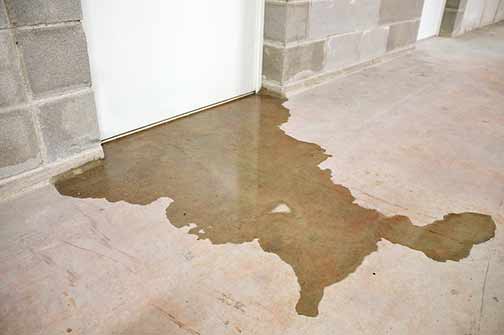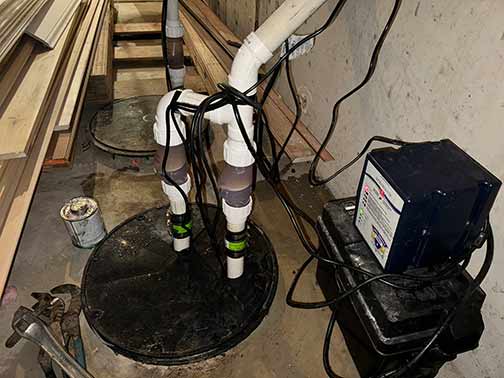Understanding Your Water Meter: A Crucial First Step
Accurate water meter reading is the foundation of efficient water management. Understanding the various types of water meters and their components enables homeowners to keep a close watch on their water usage. Different water meters may come with unique display features and methods for recording consumption, so familiarizing yourself with your specific model is essential.
Types of Water Meters and Their Components
There are several types of water meters, each with its distinct functionalities and configurations. The most common types are:
- Mechanical Water Meters: These meters use gears and a system of rotating wheels to measure water flow. The mechanical components translate water flow into measurable units displayed on a dial.
- Digital Water Meters: These modern meters use electronic sensors to track water usage. They often come with LCD displays and can transmit data directly to utility companies for more accurate billing.
- Smart Water Meters: Incorporating advanced technology, smart meters provide real-time data on water usage, allowing homeowners to monitor consumption through mobile applications or web interfaces.
Regardless of the type, all water meters share common components such as the register (which displays the reading), the chamber (where the water flows), and a protective cover.
Reading Your Water Meter Accurately
Reading a water meter may vary slightly based on its type, but the principle remains the same: capturing the exact value displayed and interpreting it correctly. Here’s a step-by-step guide to ensure you read your water meter accurately:
- Locate Your Water Meter: Water meters are typically found in outdoor meter boxes or indoor utility closets. Ensure you have the right tools, like a flashlight, to access and read the meter effectively.
- Identify the Display: Find the display panel on the meter. For mechanical meters, look for the sweep hand and the series of dials. For digital and smart meters, check the LCD screen for a direct reading.
- Record the Numbers: Note the numbers displayed on the meter. These digits represent the total water usage in gallons or cubic feet. Mechanical meters may also have a sweep hand indicating fractions of the unit.
- Understand the Units: Be aware of the unit measurement used by your meter. Gallons and cubic feet are the most common units. For accurate readings, note if any dials or digits represent fractions of the main unit.
Monitoring Water Consumption Patterns
Once you master reading your water meter, consistently record readings to monitor your water consumption patterns. Keeping a log of daily or weekly readings can help you identify unusual spikes or trends in water usage. Not only does this promote water conservation, but it also aids in early detection of potential leaks.
Spotting Potential Leaks: Key Indicators
Water leaks can cause significant damage and wastage if not addressed promptly. There are key indicators that homeowners should watch for to detect leaks early:
- Unexpected Spikes in Water Usage: A sudden increase in water consumption may signal an undetected leak. Compare current readings with past records to identify unusual spikes.
- Continuous Meter Movement: When all water-using appliances and fixtures are turned off, the meter should not move. If the meter continues to register water flow, there may be a hidden leak.
- Wet Spots and Mold: Puddles, damp areas, or mold growth, especially in areas far from water sources, can indicate leaks within walls or under floors.

sudden increase in water consumption may signal an undetected leak. Compare current readings with past records to identify unusual spikes.
Conducting a Leak Test
To confirm the presence of a leak, perform a simple leak test:
- Turn Off All Water Fixtures: Ensure that no water is being used inside or outside the home. This includes faucets, showers, sprinklers, and appliances.
- Read the Water Meter: Record the current reading on your water meter and note the time.
- Wait and Re-check: Wait for about two hours without using any water. After the waiting period, re-read the water meter.
- Compare Readings: If the meter reading has changed, you likely have a leak. The amount of change can give you an idea of the leak’s severity.
Common Sources of Household Leaks
Leaks can occur in various parts of a household’s plumbing system. Identifying the common sources can help homeowners target and fix the issues promptly:
- Toilet Leaks: Often caused by a faulty flapper or fill valve, toilet leaks can be detected by listening for continuous running water or using a dye tablet in the tank to see if it seeps into the bowl without flushing.
- Faucet Leaks: Worn-out washers or seals are common culprits behind dripping faucets. The repair usually involves replacing these inexpensive parts.
- Pipe Leaks: Pipes, especially older or poorly insulated ones, can develop cracks or holes, leading to leaks. Inspect visible pipes regularly and pay attention to any signs of moisture or corrosion.
- Appliance Leaks: Dishwashers, washing machines, and water heaters can develop leaks over time. Regular maintenance and inspections can prevent and detect leaks early.
Preventive Measures to Avoid Leaks
Prevention is key to avoiding costly water damage. Implementing routine maintenance and taking preventive measures can significantly reduce the risk of leaks:
- Regular Inspections: Periodically inspect all water-using appliances, fixtures, and exposed pipes for signs of wear or damage.
- Install Water Alarms: Place water alarms in areas prone to leaks, such as basements, under sinks, and near water heaters. These devices alert you to the presence of water, helping you take immediate action.
- Insulate Pipes: Insulate pipes in unheated or exposed areas to prevent burst plumbing pipe emergencies during cold weather.
- Maintain Water Pressure: High water pressure can damage pipes and lead to leaks. Install a pressure regulator to keep water pressure at safe levels.
When to Call a Professional
While many minor leaks can be handled by homeowners, certain situations require professional intervention. If you encounter the following, it’s best to call a licensed plumber:
- Leaks within walls or ceilings
- Significant drops in water pressure
- Recurrent or severe leaks, especially in older homes
- Galvanized pipes showing significant wear or corrosion
The Financial Benefits of Leak Detection
Detecting and repairing leaks not only prevents water damage but also offers financial benefits. Efficient water use lowers utility bills, and well-maintained plumbing systems reduce the need for costly emergency repairs. Investing time in regular meter readings and inspections is a cost-effective strategy to ensure the longevity of your home’s plumbing infrastructure.
Summing It Up
Mastering water meter reading is a vital skill for homeowners aiming to protect their homes from water damage and manage their water usage effectively. By understanding how to read your water meter, monitoring usage patterns, identifying potential leaks, and taking preventive measures, you can safeguard your home and save on utility costs. Stay proactive and vigilant in maintaining your plumbing system, and remember to seek professional help when needed. Protecting your home starts with a simple yet crucial task: reading your water meter accurately and regularly.



















